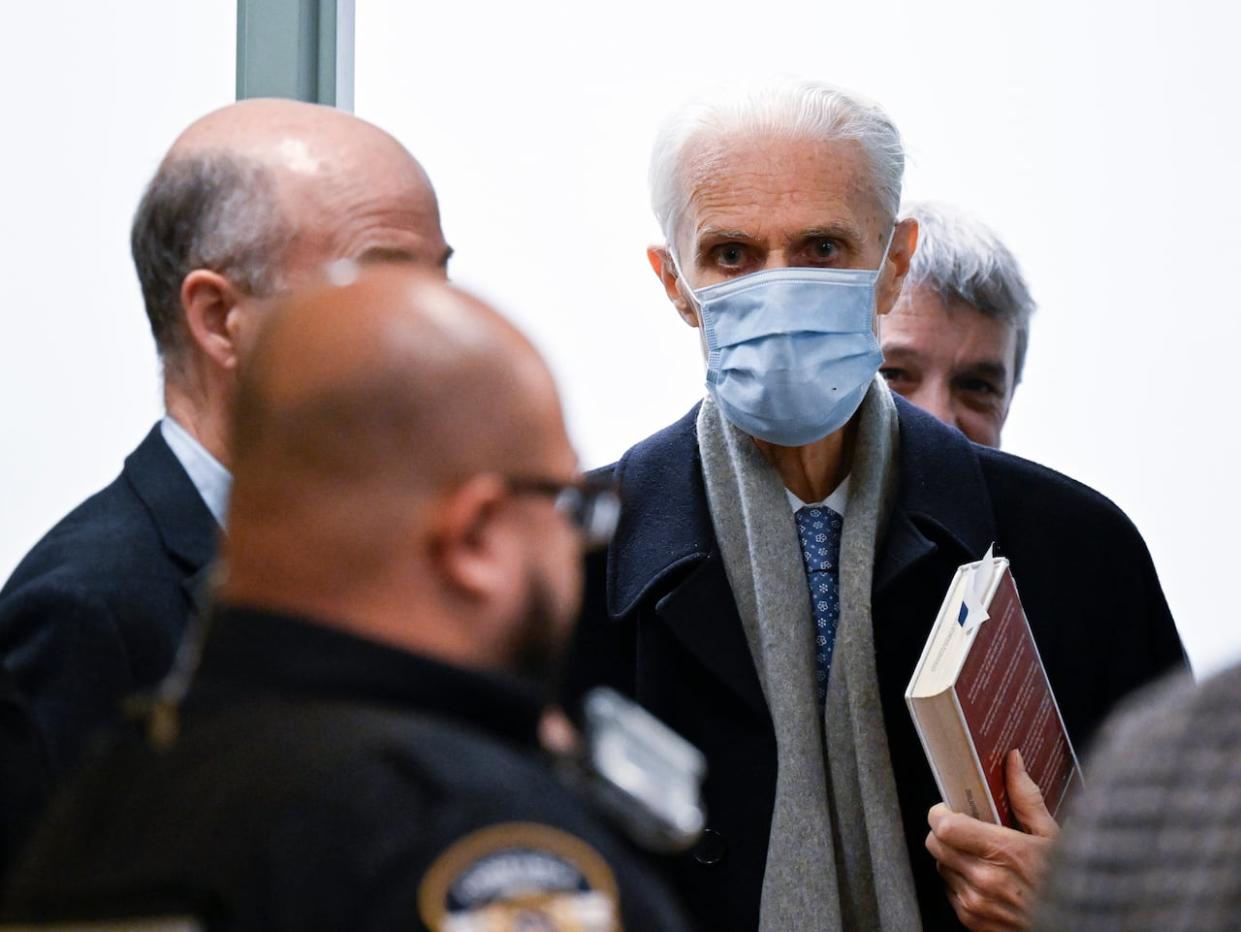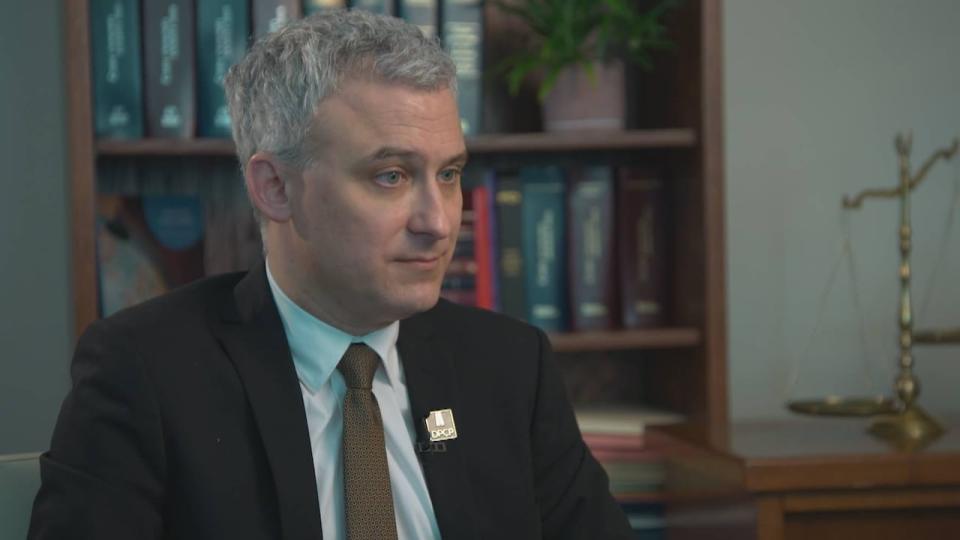Former minister must explain retrial order in murder case of ex-Quebec judge, Crown says

The head of Quebec's Director of Criminal and Penal Prosecutions (DCPC) wants former federal justice minister David Lametti to publicly justify his decision to order a retrial for former Quebec judge Jacques Delisle back in 2021.
DCPC head Patrick Michel spoke with Radio-Canada's Enquête program last week — a day after Delisle pleaded guilty to manslaughter in his wife's death, ending a 15-year judicial saga.
Now that the legal battle is finally over, Michel says he's still yet to see any justification for Lametti's decision to order a retrial for Delisle, who had originally been convicted of murder.
"We still don't understand how the minister could have been convinced," said Michel, who is concerned about the impact of this decision on public confidence in the justice system.
He said the decision "not only discredits the administration of justice, it also discredits the review process for wrongful convictions."
In 2012, Delisle, a retired judge with the Quebec Court of Appeal, was convicted of first-degree murder in the 2009 death of his wife, 71-year-old Marie Nicole Rainville, and was sentenced to life in prison with no chance of parole for 25 years.
He spent nine years in prison before Lametti, the federal justice minister at the time, ordered a retrial after finding that "a miscarriage of justice likely occurred" in the case, in part because one of the Crown's experts made serious mistakes in the original pathology report that led to Delisle's conviction.
Lametti said his decision stemmed from the discovery of new information which was not before the courts at the time of the trial.
Delisle was released in 2021 pending his second trial, which never took place.

Former justice minister David Lametti ordered a new trial for Jacques Delisle back in 2021 after the former judge had spent nine years in prison for first-degree murder for the death of his wife. (Spencer Colby/The Canadian Press)
Lametti's decision came after a 2017 report submitted to him by the federal Criminal Conviction Review Group (CCRG), which advises the minister, did not reveal any miscarriage of justice.
"When [the DCPC] read the report, we couldn't see anything that wasn't already available at the time of the first trial to justify the minister's decision," Michel said.
The report, which had been under a publication ban until Thursday, said Delisle's defence strategy — which included a decision not to have him testify — was a risky one which, in the end, did not serve him well.
It also stated, among other things, that Delisle lied, manipulated the truth to use it as a strategy and that his explanations raised credibility issues.
According to the CCRG, not telling the truth during a trial is "not an error in the justice system."
'I never said that the ex-judge was innocent': Lametti
In one of two letters sent by the DCPC's office to the CCRG, Michel says officials asked "whether other elements unknown to us" may have been submitted as part of the process that might have played a role in the minister's decision.
The DCPC never received a response to its questions.
In interviews with CBC and Radio-Canada on Monday, Lametti said his decision was not based solely on the report, which "is not determinative."
Lametti said he sought the advice from other legal experts, as is often the case. In this case, he got the opinion of two jurists, after which he made his decision.
"I never said that the ex-judge was innocent," Lametti said. "I sent all the files back so they could be re-evaluated."
Lametti, who said it's not uncommon for a justice minister to disagree with the CCRG, would not say what factors contributed to his decision to order the retrial.
"The minister never gives the reason for rehearing the case," he said. "That could be seen as an attempt to influence the Superior Court, which then has to hear the case again."
Lametti says he also no longer has access to the additional documents he received, "but I believed at the time and therefore still believe now that [the case] met the standard of review based on all the information and opinions that I had in front of me."

Patrick Michel, who heads Quebec's Director of Criminal and Penal Prosecutions (DCPC), says he wants more transparency and accountability from the former federal minister. (Radio-Canada)
Michel, for his part, says the fact that Lametti sought additional legal opinions makes things even more convoluted.
"We didn't even know these opinions existed," he said.
"It's worrisome that a jury verdict upheld by the Supreme Court can be overturned like this on the basis of opinions that only the minister of justice has seen."


